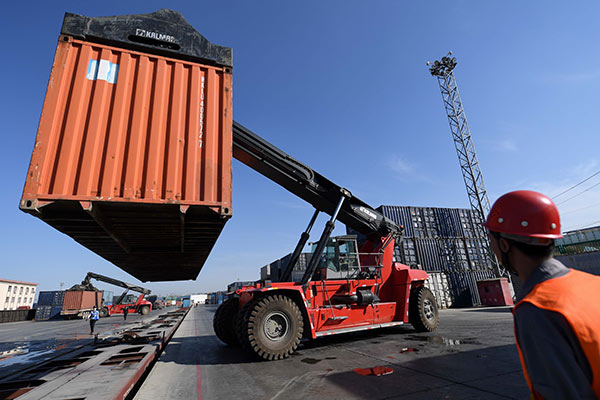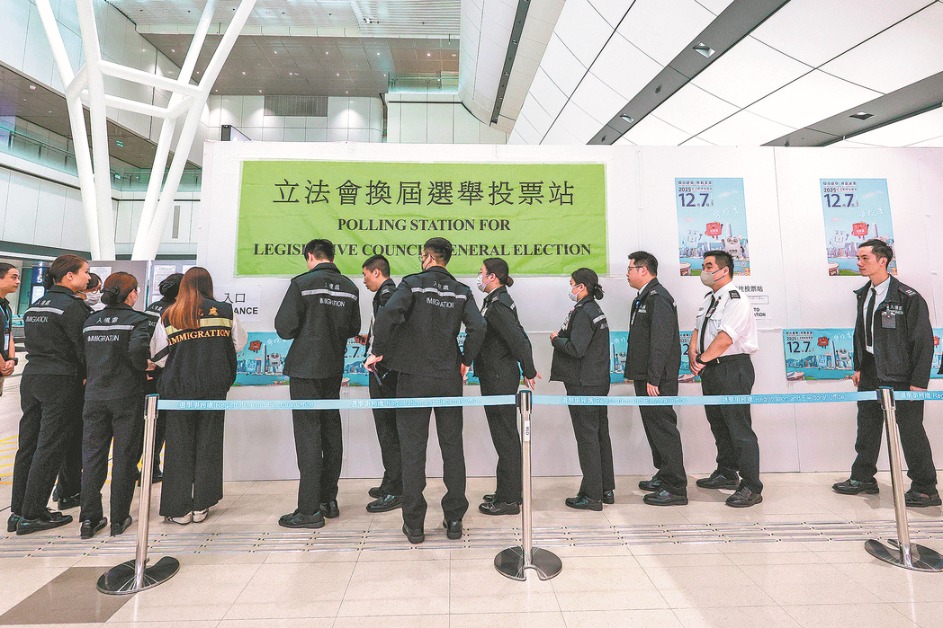Better quality growth ahead
By Li Xiang and Chen Jia | China Daily | Updated: 2017-11-30 07:34
 |
| A worker watches a crane loading cargo in Urumqi, capital of the Xinjiang Uygur autonomous region.[Photo/Xinhua] |
China will see softened growth in the coming quarters due to tighter credit conditions and the deceleration of property and infrastructure investment, but growth quality will improve due to robust consumption and exports, economists said on Wednesday.
The country's GDP growth will moderate to 6.5 percent next year and fall further to 6.3 percent in 2019 as policymakers step up industrial capacity cuts, leverage controls and property curbs, according to Robin Xing, chief China economist with Morgan Stanley Asia Ltd.
Growth will be dragged down by slower investment as property investment growth is expected to drop from this year's 7 percent to 5 percent next year, and infrastructure investment falls to 13 percent from 15.6 percent, Xing said at a news conference in Beijing.
"While there is short-term downward pressure, the slower growth is a reflection of the policymakers' commitment to prioritize growth quality, and we are more confident on China's long-term outlook," Xing said.
The improvement of China's growth quality was highlighted by the trend that consumption is becoming a main driver. Its share in China's real GDP growth is expected to rise further to 67 percent next year on the back of a resilient job market, according to Xing.
Other supportive factors include China's robust exports supported by stronger global recovery and the steady growth of investment from the private sector, Xing added.
Song Yu, chief China economist and vice-president of Beijing Gao Hua Securities Co Ltd, shared similar views with Xing, expecting China to see modest growth deceleration next year with a 6.5 percent real GDP growth rate, down from a forecasted 6.8 percent this year.
The relatively higher growth rate in China-compared with an expected global rate of 4 percent-will continue to lead global economic growth, which could help some economies jump out of the deflation trap, according to Song.
Both economists forecast rising inflation in China next year, with Song expecting the consumer price index to move higher to 2.3 percent from this year's 1.5 percent. But he said it is still within the government's comfort zone.
Song expected China's monetary policy to be broadly stable, adding that policymakers should accelerate economic reforms with continued targeted tightening to contain financial risks, restraints on house price appreciation in top-tier cities, as well as "shadow banking" leverage.
When it comes to credit conditions, Xing from Morgan Stanley believed that China will likely see incrementally tighter financial conditions with a possible rate hike next year by the Chinese central bank, combined with continued regulatory tightening on shadow banking and scrutiny of local government financing.
The People's Bank of China will likely raise interest rate by 25 basis points in the third quarter of next year in the face of rising inflation and upcoming rate hikes by the US Federal Reserve, according to Xing.
























